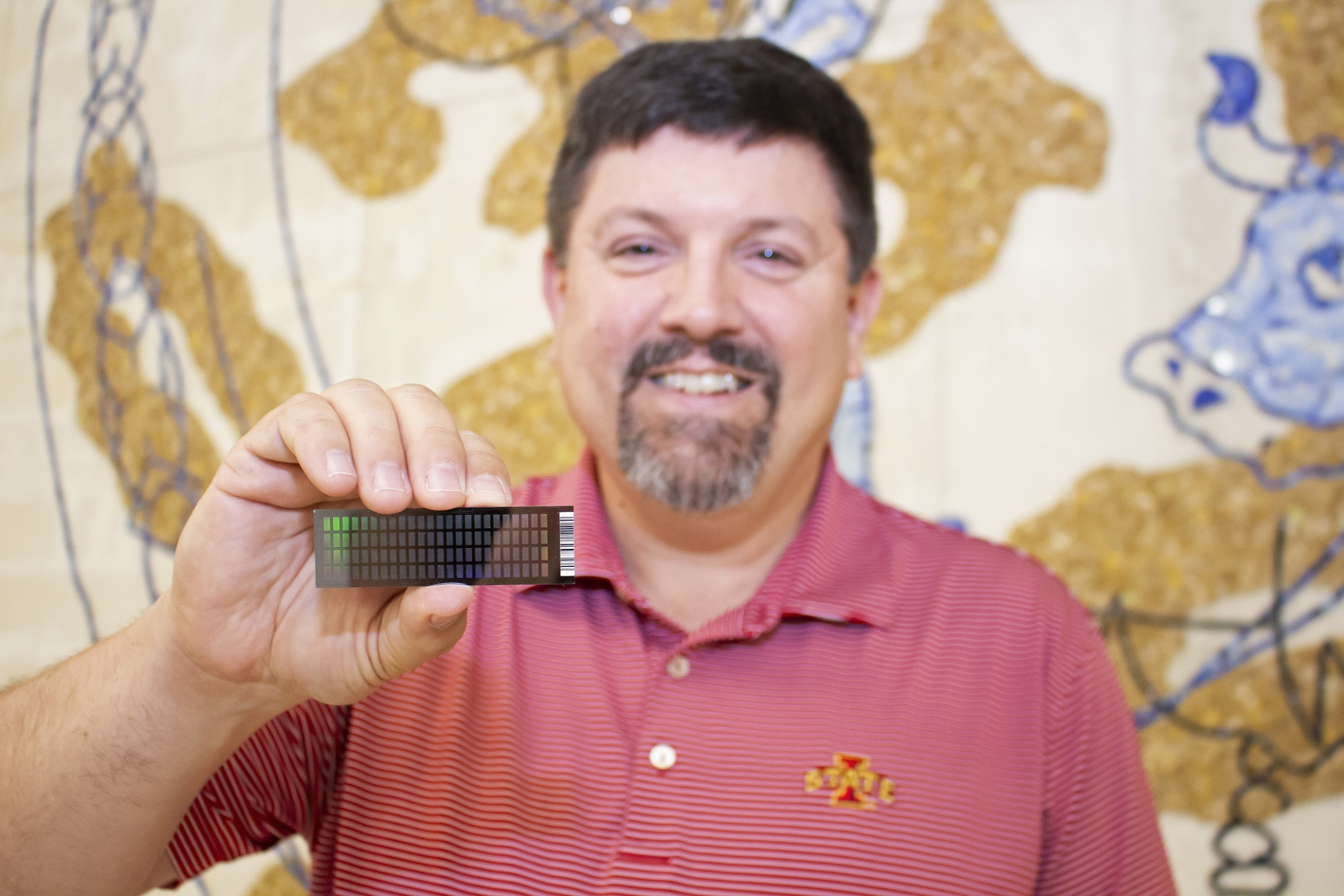
AMES, IA – “This effort is a culmination of years of dreaming about such an opportunity and finally gaining access to the data and funding to make it happen,” said James E. Koltes, associate professor of animal science at Iowa State University.
Koltes is referring to a new USDA-supported project he is leading with colleagues at Iowa State and several partner institutions to create a systematic catalog, or encyclopedia, of the DNA netherworld scientists call “genetic regulatory regions” for in animal species. The research sets the stage for important discoveries by identifying DNA regulatory variation that could be beneficial in breeding for improved animal efficiency and health.
“We’ve known for years that most of the genetic variation in traits useful for breeding is not actually found in genes,” Koltes said. “Much of the DNA in regions outside genes is thought to be common junk, but research shows that some of it has important functions – and contains heritable genetic or epigenetic variation that changes the appearance and performance of animal.”
Epigenetic variation refers to chemical changes in DNA due to factors such as diet or environmental conditions that change how genes are expressed but do not change the structure of the DNA, Koltes explained. These include complex traits such as body weight or even traits that make a species a species.
These gene-devoid regions are thought to comprise more than 90% of the animal genome. Studies in humans and mice, including those done by the ENCODE Consortium, indicate that DNA regulatory regions can govern how genes are turned on and off, controlling important growth process at different stages of an organism’s life and different tissue and cell types.
“I’m also working on understanding how genetics affects the variation in feed efficiency from animal to animal in dairy cows,” Koltes said. “That’s a complex trait, likely controlled in part by DNA regulatory regions that are outside of what we traditionally think of as genes.”
Koltes said the new grant will focus on cows, pigs and sheep, though the software the team will use to catalog DNA elements could work for other species. Their ultimate goal is to help accelerate genetic improvements by generating new “open-source” annotation data sets that assign known or possible functions to a specific DNA sequence location, providing the first map of livestock regulatory functions for several species, with an online website to serve as a home for information and training to support its sharing.
“In addition to these useful tools, we’re really digging into some novel science that has the potential to quickly move into application,” he said.
The project just received $800,000 for the next three years from the National Institute of Food and Agriculture under the USDA’s Agriculture and Food Research Initiative. The new grant was born out of a seed grant project of the Agricultural Genome to Phenome Initiative (AG2PI), Koltes said.
He will collaborate with other Iowa State animal scientists, including Distinguished Professor Chris Tuggle, a leader in the Functional Annotation of ANimal Genomes (FAANG), an internationally coordinated effort to create and share a wealth of high-quality information in farmed and companion animal genomes. being cataloged in the new project; and associate scientist Zhiliang Hu, a lead developer of tools for animalgenome.org.
Other partners are:
- Zhiping Weng, Li Weibo Chair in biomedical research at the University of Massachusetts Chan Medical School, a lead data scientist at ENCODE and developer of SCREEN, a key software that will be used for animals in this project. ENCODE, which began about a decade ago with a focus on the human genome, is a similar project to FAANG for animals.
- Mallory Freeberg, head of the Human Genomics Team, the European Bioinformatics Institute and Molecular Biology Laboratory (EMBL-EBI).
- Brenda Murdoch, associate professor in the Department of Animal, Veterinary and Food Sciences at the University of Idaho.
- Chris Elsik, professor of animal science at the University of Missouri.
Contacts:
James Koltes, Department of Animal Science, 515-294-8274, jekoltes@iastate.edu
Chris Tuggle, Department of Animal Science, 515-294-4252, cktuggle@iastate.edu
Ann Y. Robinson, Agriculture and Life Sciences Communications, 515-294-3066, ayr@iastate.edu
#Iowa #State #leads #dream #project #catalog #animal #DNA #regulatory #regions #genes